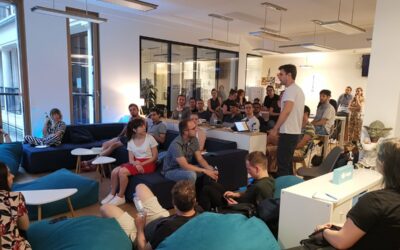Are you feeling stuck in your career? Many people can make the very easy mistake of focusing more on improving their weaknesses than building their strengths. We get conditioned early on in school that improving our shortcomings will result in good grades. But once outside the classroom, this weakness-focussed approach can be harmful to your career development.
On the other hand, a strength-based approach focuses on individual strengths, not weaknesses. Studies show that employees are more effective and motivated when building on their strengths instead of working on their weaknesses. This is because working on something you enjoy makes you feel lighter. You lose track of time, and the chances of entering a flow state are higher. Flow describes the exhilarating mental state of complete immersion and complete absorption in an activity.
We can translate the Strength-Based Leadership principles from management into personal career development. I want to share my story and how focusing on my strengths instead of being stuck helped me create a career I love.
Finding the Courage to Face the Truth About Your Job
When I worked as an Architect and Construction Manager, I had to do many detail-oriented tasks – My days were spent living inside spreadsheets and detailed construction drawings.
I was actually good at my job, but it expended a lot of effort to create a decent outcome. I thought this was normal and figured I just had to improve my weaknesses to reach the next level in my career.
As an Architect, I wasn’t thriving, though. Deep inside, I knew my strengths were not aligned with my job and the tasks I was doing every day. I loved my architecture studies, but my interests simply changed over time. In the beginning, I felt terrible about myself “wasting” five years of my life studying for a profession I didn’t want to practice.
If you want to learn more about transitioning from Architecture into UX Design, I wrote a more detailed post about how I transferred my skills as an Architect into UX Design.
Doing some research, I learned that I’m not alone. A study on behalf of the online magazine “CNBC Make It” states that nearly half of older Millennials wish they’d chosen a different career path.
Change is a positive force, but the important part is finding the courage to face the true inner self and what drives us. That’s the first step to a fulfilling career.
Your Professional Value is Determined by Others, Not by You
Why couldn’t my managers and leaders see my true strengths? The reason was simple. My skills and strengths didn’t align with the professional requirements of an Architect or Construction Manager.
Growing in a company highly depends on how your skills fit into the imminent needs of your leadership and business. So it is possible that you have many skills, strengths, and goals, but they don’t align with the needs and goals of your organization or even your industry.
Your employer or customer determines value. I learned about this concept in a video from Chris Do, where he explains the idea very effectively.
A skill that seems irrelevant and undervalued in your current job can be the reason for success in your next one. This can be a good thing! It only means that you need to find the right home for your talents.
What Can You Do To Find a Career You Will Rock?
You can only reach your full potential if you know your strengths and turn them into value.
- Assess your current situation and understand whether you REALLY enjoy what you are doing and if it aligns with your personal goals and values. If you find yourself in a career you don’t want, don’t beat yourself up. Face reality and pivot.
- Focus on the skills that come easily to you. Those are your strengths and talents that could make you a high-demand person.
- Read the book Strengths Finder 2.0 from Gallup and run through the exercises. Think about how you can leverage your strengths in your career.
- Don’t work hard to balance out skills that don’t align with your goals. You will only create a mediocre outcome. For example, if you enjoy talking to customers and naturally make a close relationship with them, you should build upon this talent.




